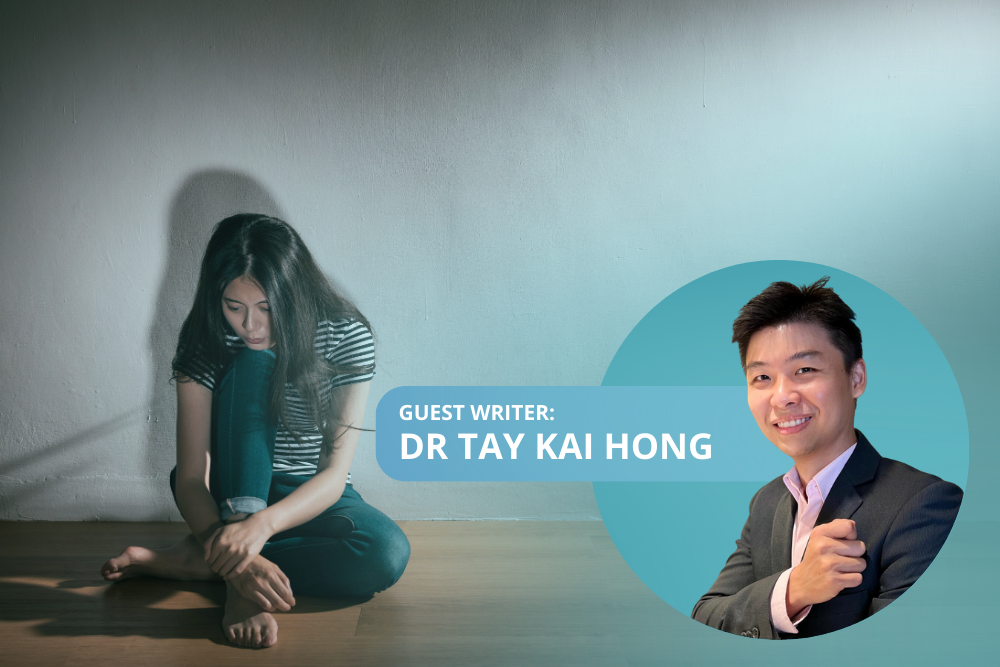Mood disorders, such as bipolar disorder, are generally underreported due to the stigma behind mental health conditions. This leads to delayed access to treatment options and greater awareness is needed.
Medical Channel Asia invites Dr Tay Kai Hong, Psychiatrist and Medical Director at Private Space Medical to explain this condition in greater detail.
What Are Mood Disorders?
Mood disorders are psychological conditions where one’s mood state is disturbed to the extent that social and occupational function is severely affected. We all have our own “thermostat” and barometer when it comes to our mood. Our mood may fluctuate within a certain range over the months depending on our personal circumstances, but it generally stays within a normal healthy range which allows us to function in our personal, professional and academic lives regardless of stressors. However, when this biological thermostat or “set point” is disturbed such that our mood is abnormally and persistently low or high, one could be experiencing a mood disorder.
Broadly speaking, there are two types of mood disorders. In Major Depressive Disorder and Dysthymic Disorder, one experiences sustained episodes of low mood, energy, and motivation. Collectively these are known as unipolar depressive disorders. On the other hand, mood states can swing to the other extreme to become abnormally high and euphoric in Bipolar Disorder.
RISK FACTORS:
- A family history of mood disorders, especially in parents or siblings
- A previous mood episode (depressed or manic)
- Adverse childhood experiences such as abuse or neglect
- Chronic and painful medical conditions
- A history of brain diseases such as epilepsy, stroke or Parkinson’s disease
- Certain hormonal problems, such as abnormal thyroid, cortisol, or calcium levels
- Personality factors such as introversion, pessimism, high degree of neuroticism
- High levels of environmental stress from work or family
- Exposure to mind-altering substances such as alcohol or other substances
How Do Doctors Diagnose Mood Disorders?
Mood disorders are diagnosed based on episodes. A diagnosis of Major Depressive Disorder is made when there is at least one major depressive episode. Likewise, a diagnosis of Bipolar Disorder is made when there is at least one manic episode.
A major depressive episode is a sustained period of abnormally low mood, low energy and low motivation to participate in life. The episode should last for at least 2 weeks for a diagnosis to be made. The 2011 Singapore Mental Health Study found that 1 in 17 local residents have suffered from depression at some point in their lives.
How Are Symptoms Diagnosed
Symptoms Of A Major Depressive Episode:
- Depressed mood as reported by the person, and observed by others
- Loss of interest or pleasure in activities
- Disturbances in appetite, accompanied by changes in weight
- Disturbances in sleep
- Low energy levels, feeling constantly tired and fatigue
- Slowing of mental processes and body movements
- Unable to concentrate and focus on important tasks and work
- Feeling worthless, helpless and hopeless
- Suicidal thoughts and behaviours
A manic episode is a period of abnormally and persistently elevated or irritable mood, accompanied with abnormally high levels of energy and goal-directed behaviours, which last at least one week.
Symptoms Of A Manic Episode:
- Inflated self-esteem or grandiosity
- Reduced need for sleep e.g. Feeling refreshed after only 2-3 hours of sleep
- More talkative than usual
- Having many ideas about life, work, and business and want to execute them
- Increased energy in personal social, school or work-related pursuits
- Distractibility, eg attention is too easily drawn to too many things
- Engaging in risky activities which result in harm eg. Unrestrained spending sprees, sexual indiscretions, foolish business investments
- Agitated behaviours
Doctors diagnose bipolar disorder when there’s at least one episode of mania or hypomania, which are shorter and milder episodes of mania. Broadly speaking, there are 3 different types of bipolar disorders:
- Bipolar 1 disorder is characterised by recurrent episodes of full-blown manic episodes and more severe depressive episodes. Each episode can last for several weeks to months. This is a chronic mood disorder, and it may be predominantly depressive or predominantly manic. Psychosis, which is a state of losing touch with reality, can occur in bipolar 1 disorder. Psychotic symptoms include hallucinations and delusions.
- Bipolar 2 disorder is characterised by milder and briefer episodes of mania (hypomanic episodes), and recurrent episodes of depression. Bipolar 2 disorder is usually less severe and less impairing than bipolar 1 disorder, but the episodes of depression can be very distressing and problematic too. Due to similar symptoms and presentation, doctors might confuse bipolar 2 disorder with borderline personality disorder or recurrent depressive disorder.
- Cyclothymic disorder is characterised by recurring episodes of mild depression and mild hypomania. This is the mildest form of bipolar disorder but may still benefit from treatment if the mood episodes are causing distress and functional impairment.
Early diagnosis and access to treatment is crucial. A mood episode has the potential to wreak mayhem to one’s family life, work, school and social life. The longer we allow a mood episode to drag on, the longer the chemical disturbance in the brain goes uncorrected, and the more damage it can do to the person’s life.
What Are The Treatment Options
- Large international studies have scientifically proven that medications are effective for bipolar disorder. Medications are effective in treating the acute mood episode and preventing relapse. They include mood-stabilising medications (such as Lithium, Valproate, and Lamotrigine), antipsychotic medications (such as risperidone, lurasidone and brexiprazole) and anti-depressant medications.
- Bipolar disorder is a chronic condition with a high risk of relapse – up to 90% of patients will experience a recurrence of the illness. As a result, we recommend maintenance medications for at least a few years.5
- Psychological therapy is a critical adjunct to medications to improve overall psychosocial function and well-being. Some proven therapies include Cognitive Behavioural Therapy (CBT) and Interpersonal Social Rhythm Therapy (IPSRT). Therapy aims to equip us with the skills needed to manage negative emotions and adversity in life. While medications focus on restoring the chemical balance in our brains, therapy teaches lifelong skills which will help to prevent another mood episode.
- Lifestyle interventions such as exercise, diet and good sleep habits are crucial. Longer periods of good sleep are essential for the brain to rest during a manic episode. On the other hand, behavioural activation and increase in exercise helps to boost energy levels and alleviate depressive symptoms.
- Social interventions. Helping the family / school / company understand the disorder may go a long way in enlisting their support and promoting recovery. However, doctors will only reach out to them with explicit permission from the patient.
- In extreme cases of bipolar disorder, doctors might recommend inpatient admission. Electroconvulsive Therapy (ECT) has proven safe and effective for severe episodes of mania and depression.
Dealing With Stigma Of Mental Health
The stigma around mental health conditions such as bipolar disorder discourages those affected from coming forward to seek help. It leads to delays in access to care, treatment, and recovery. Even after a diagnosis, patients may stop medications prematurely because of stigma. They may initially be in denial about their illness and cannot accept that they have a serious psychological condition. Family and friends may pass unjustified judgements about their behaviours when they are unwell. When patients do not feel understood and supported by loved ones, they understandably struggle with feelings of guilt and shame and are less invested in their recovery. Stopping medications prematurely elevates the risk of relapse. Issues surrounding stigma, family support and adherence to medications have profound effects on the long-term trajectory of the illness.
Ongoing Research
There is ongoing research to understand the neurobiological and genetic roots of bipolar disorder and novel treatment options for bipolar disorder. The neuroscience behind mood regulation is complex, and we are just starting to understand how various brain structures and circuitry help regulate our mood. Large-scale genome-wide association studies have also identified individual genes linked to the risk of bipolar disorder. In line with the development of precision medicine, there is hope that future treatments for bipolar disorder go beyond neurochemistry to target underlying gene expression. There is also active research to explore the utility of brain modulatory modalities such as transcranial magnetic stimulation, which may be a promising non-invasive treatment option for patients who are unwilling to take medications or unable to tolerate the side effects of medications.











